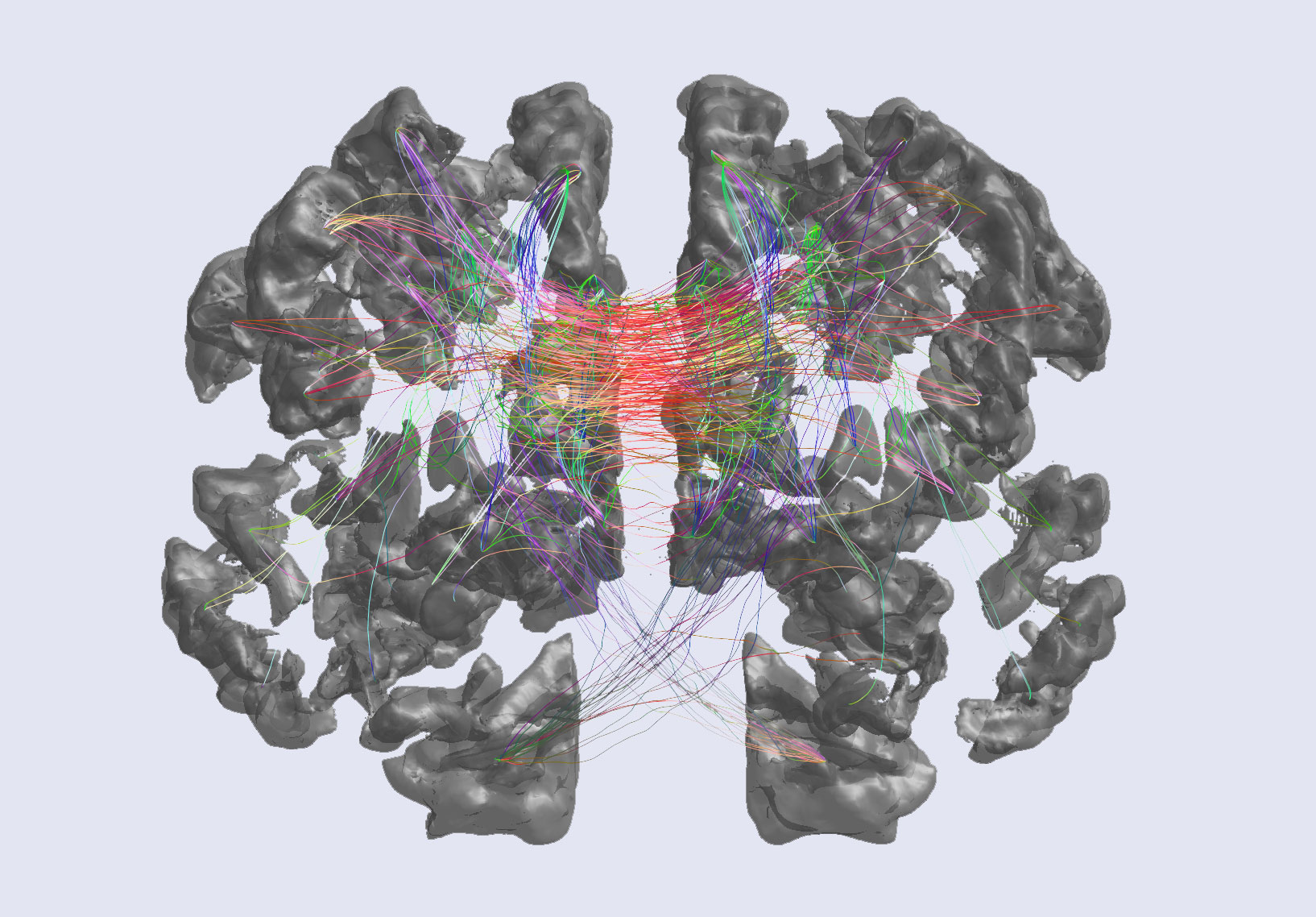Brain Networks

We take a network perspective on the human brain in healthy aging and cerebrovascular diseases. From this viewpoint, we understand the brain as a large-scale, complex network of interconnected areas that undergoes characteristic topological changes after acute or chronic vascular injury. Our key scientific interest is the understanding of network effects induced by localized and globally distributed lesions and how this relates to clinical phenotypes in cerebrovascular diseases and stroke recovery. Therefore, we apply state-of-the-art magnetic resonance imaging including diffusion tensor imaging (DTI) and resting-state functional MRI.
We have shown that focal, subcortical stroke lesions induce neurodegeneration and atrophy specifically in distant, yet connected cortical brain areas (Cheng et al., 2020). In patients from our comprehensive, prospective stroke database, we demonstrated extensive and characteristic alterations of structural brain network topology that are related to functional outcome beyond traditional clinical parameters and imaging markers such as lesion volume (Cheng et al., 2019; Schlemm et al., 2020). We have furthermore advanced the understanding of chronic impairment of cerebral macro- and microvascular perfusion as “global brain diseases” by reporting substantial changes in structural and functional connectivity in patients with carotid stenosis and cerebral small vessel disease (Quandt et al., 2019; Petersen et al., 2020).
